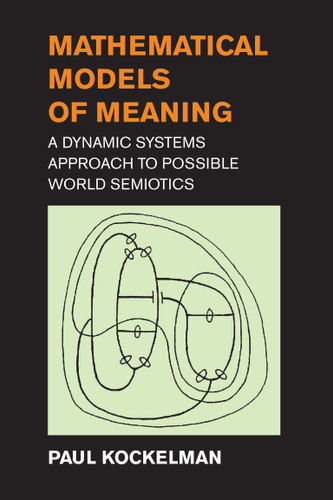Overview
In Mathematical Models of Meaning, Paul Kockelman offers answers to the following kinds of questions: What is meaning? What is the relation between meaning, information, value, and purpose? What ingredients are necessary for a system to exhibit meaning? What behaviors, and capacities for behavior, are particular to meaning-oriented agents? Is there a relatively simple mathematical model that can adequately capture the dynamics—and diversity—of meaning-oriented agents? And finally, how can we best bridge the divide between interpretive paradigms that are qualitative and context rich and formal methods that are quantitative and domain general?
Partially grounded in a pragmatist approach, this book rethinks the semiotic, statistical, and logical currents of Charles Sanders Peirce’s thought in relation to more recent developments in allied traditions. Putting possible worlds, as well as social relations, at the center of significance, it focuses on the emergence of meaningful behavior among relatively distributed agents that choose in real time, learn over developmental time, or evolve over phylogenetic time.
While major retailers like Amazon may carry Mathematical Models of Meaning (A Dynamic Systems Approach to Possible World Semiotics), we specialize in bulk book sales and offer personalized service from our friendly, book-smart team based in Portland, Oregon. We’re proud to offer a Price Match Guarantee and a streamlined ordering experience from people who truly care.
We’re trusted by over 75,000 customers, many of whom return time and again. Want proof? Just check out our 25,000+ customer reviews—real feedback from people who love how we do business.
Prefer to talk to a real person? Our Book Specialists are here Monday–Friday, 8 a.m. to 5 p.m. PST and ready to help with your bulk order of Mathematical Models of Meaning (A Dynamic Systems Approach to Possible World Semiotics).

